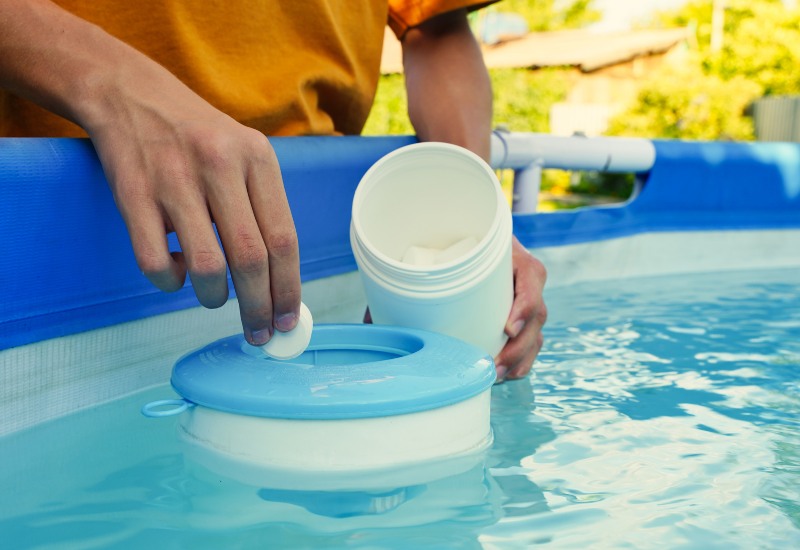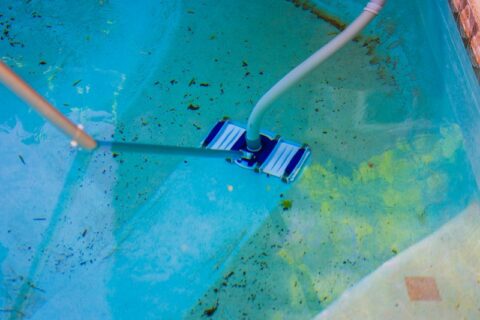How to Reduce Chlorine Sensitivity During Peak Usage
A swimming pool offers a perfect escape, especially during the warm peak season. However, for some, increased pool usage can lead to uncomfortable skin sensitivity. Understanding how to manage your reaction to the chlorine in pool water in Virginia, Washington, D.C., and Maryland is key to enjoying your swim without irritation.
The Role of Chlorine in Pool Sanitation
Chlorine is an essential chemical sanitizer that keeps your swimming pool safe and clean. It effectively eliminates harmful bacteria, viruses, and other microorganisms that can thrive in water. Maintaining the correct chlorine balance is vital for ensuring a healthy swimming environment for everyone. During peak commercial or private pool usage, more contaminants like sweat and oils are introduced, requiring diligent chemical management.

Understanding Chlorine Sensitivity
What many people call “chlorine sensitivity” is often a reaction to chloramines, which form when chlorine combines with sweat, oils, and other substances brought into the pool by swimmers. This can lead to skin irritation, red eyes, and a strong chemical smell. A properly balanced pool should have minimal chloramines. Symptoms of sensitivity can include itching, redness, or a mild burning sensation.
Common Skin Problems from Chlorine
Exposure to unbalanced chlorine water in a swimming pool can lead to several skin issues. The most common is chlorine rash, irritant contact dermatitis. This condition appears as red, itchy patches on the skin. Other swimmers may experience dry skin, flakiness, or hives.
Pre-Swim Preparation and Post-Swim Care
You can take simple steps to protect your skin before and after swimming. Explore some of our tips:
Pre-Swim Preparation: A good pre-swim preparation routine is your first line of defense. Rinsing off in a shower before entering the pool helps remove sweat and oils from your skin, reducing the formation of irritating chloramines. Applying a pre-swim lotion or waterproof barrier cream can also create a protective layer on your skin.
Post-Swim Care: Your post-swim care is equally important. As soon as you get out of the pool, rinse off thoroughly with fresh water to wash away any remaining chlorine. Use a gentle, moisturizing soap and follow up with a high-quality lotion to rehydrate your skin and restore its natural barrier.
When to Seek Professional Help
If your skin irritation persists or worsens despite taking these precautions, it may be time to consult a professional. A dermatologist can help determine the exact cause of your reaction. Additionally, if you suspect the issue is with your pool’s chemical balance, our pool care experts can ensure your water is safe and properly sanitized without being overly harsh.
Your Pool Experts in Virginia, Washington, D.C., and Maryland
At Millennium Pools & Spas, we specialize in creating and maintaining perfectly balanced pools across Virginia, Washington, D.C., and Maryland. Our experienced technicians can test your water, correct any chemical imbalances, and provide expert advice on managing your pool for maximum comfort and safety. We ensure the chlorine water in your swimming pool is sanitized effectively while minimizing the potential for skin irritation. Don’t let chlorine sensitivity keep you from enjoying your pool this season. For expert pool service and maintenance, fill out our contact form or call us today to speak with our professional team.


